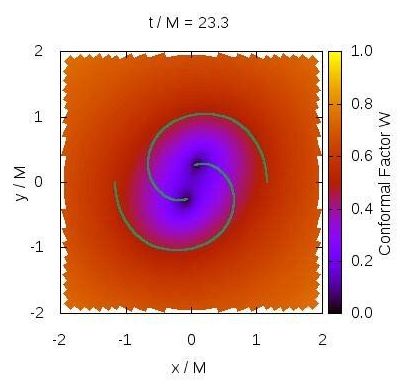Researchers hoping to better interpret data from the detection of gravitational waves generated by the collision of binary black holes are turning to the public for help.
West Virginia University assistant professor Zachariah Etienne is leading what will soon become a global volunteer computing effort. The public will be invited to lend their own computers to help the scientific community unlock the secrets contained in gravitational waves observed when black holes smash together.
LIGO’s first detection of gravitational waves from colliding black holes in 2015 opened a new window on the universe, enabling scientists to observe cosmic events spanning billions of years and to better understand the makeup of the Universe. For many scientists, the discovery also fueled expansion of efforts to more thoroughly test the theories that help explain how the universe works—with a particular focus on inferring as much information as possible about the black holes prior to their collision.
